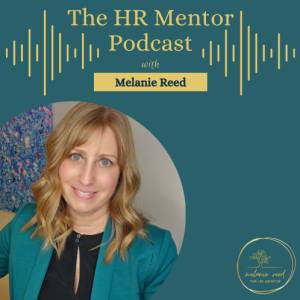
As I have talked about many times before on this show, getting that first opportunity can be challenging. You may not quite have enough experience that potential employers are looking for and you may be lacking the confidence needed to put yourself out there and sell an organization on what you can offer. These are of course skills you can develop once you know-how.
One way that some job seekers stumble in the process is when it comes to providing references. Last year I interviewed my good friend and colleague Joel Peterson and we talked about the importance of reference checks for employers. You can listen to our conversation by checking out Episode 39 of The HR Mentor. And while we did briefly cover how to select a reference, in this episode I share some more specific advice on how to chose the best references for your next job competition and address some of the common missteps I see emerging professionals make with this critical process. Because why would you want to get all the way to the end of the process and then blow the opportunity because you weren’t prepared?!
Summary of key points in this episode:
- Preparation is important for a successful reference process.
- Selecting the right reference is critical. The right reference depends on the job you are applying for and the experience and competencies they require.
- Preparing your referees for the call is equally important. Make sure they know the job you are applying for and what information they can share to best present you to the employer.
- Always thank your referees, especially if you didn’t get the job. You may need their support in the future and a heartfelt thank you goes a long way.
- You may want to choose references other than your current or past Manager or Supervisor, but make sure it is relevant to the role.
- Options for references could be co-workers, people you volunteered with, consultants or clients, professors, and potentially co-workers.
- Regardless of who you chose to speak on your behalf, explaining to the person checking your references what their relevance is to the process is helpful. Give them some context and they will be more likely to accept a non-traditional referee.
Helpful links in this episode:
- Episode 39: The Art of Reference Checks with Joel Peterson
- Episode 41: Prepare for your HR Job Search
- Learn how to support Indigenous People in Canada - Check out my In Solidarity page
- Sign up for the Newsletter to get notified of the HRCA Launch and remember your discount code HRMENTORPOD
If you are feeling generous and want to send some love my way, I would be so very grateful for a review and a rating on Apple Podcasts or a recommendation on LinkedIn. And if you haven't yet, don't forget to subscribe to The HR Mentor so you never miss an episode on the following platforms:
And if you are serious about building your HR career and you want to support the HR Mentor, consider getting a membership.
The HR Mentor Fan Club is a virtual space where you can get access to special bonus episodes of the podcast, resources, and free downloads as well as a chance to access special discounts on future programs.
If you join today, you will get instant access to my decision-making tool to help you say no to activities that aren’t aligned with your values and goals and much more.
You will also be eligible for an exclusive discount on the HR Career Accelerator program launching once again this summer.
As always, thank you so much for listening to this episode. Your time is greatly appreciated.
No comments yet. Be the first to say something!